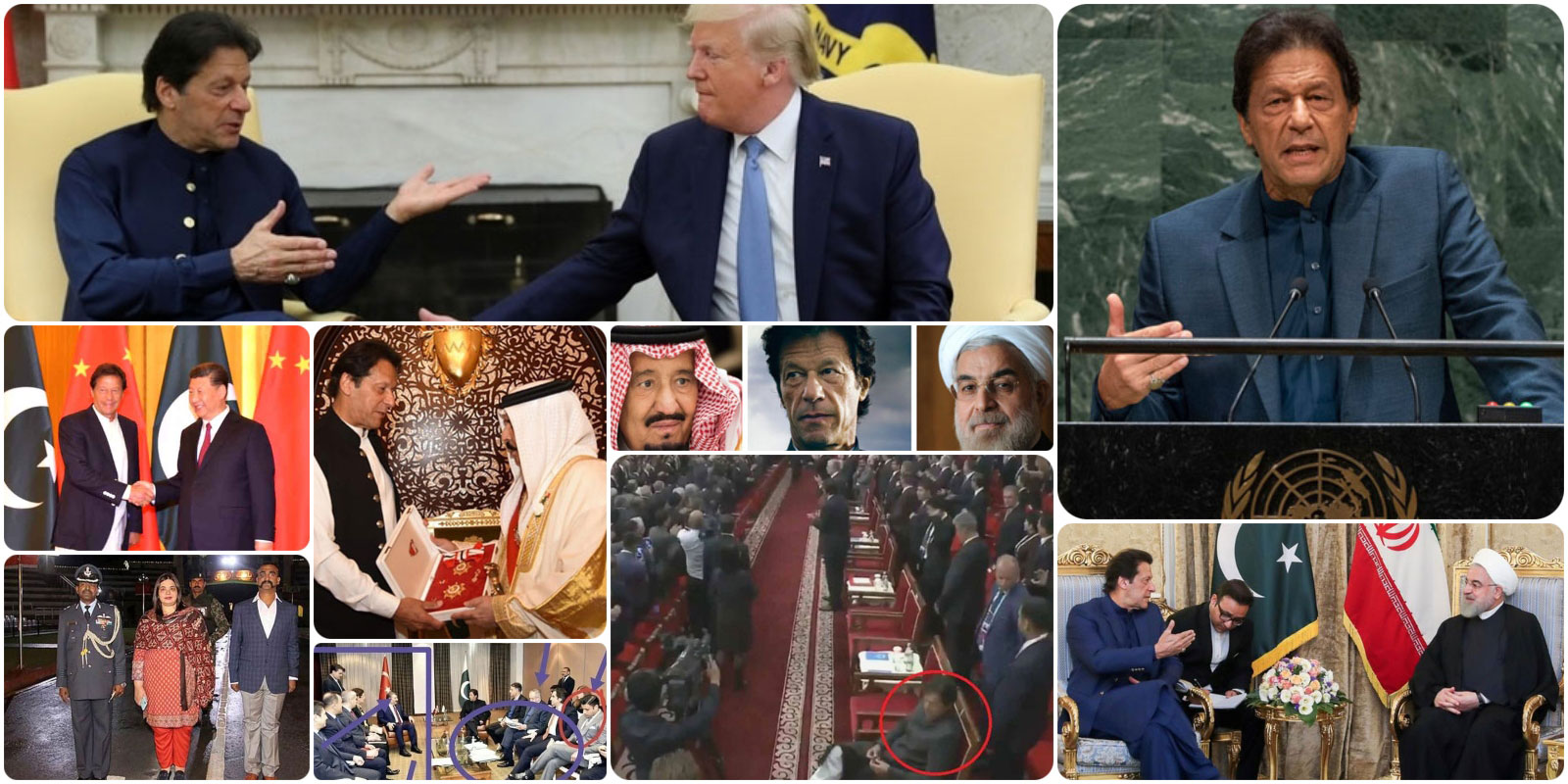2019 in focus: A good year for Pakistan's foreign relations
Beijing and Washington remained the two most important capitals for Pakistan in 2019, but Riyadh's significance surged as well

The year 2019 was an important one on the foreign front, as Prime Minister Imran Khan and Foreign Minister Shah Mehmood Qureshi were forced to make a number of moves internationally to find support for the ailing economy and improve relations while counteracting Indian aggression.
It was no surprise, then, that a majority of the prime minister's foreign tours were undertaken either to gather international support against Indian atrocities in occupied Kashmir or to stabilise the crippling economy via packages and loans.
In the outgoing year, Beijing and Washington continued to remain the two most important capitals Islamabad looked to in its time of need. However, Riyadh's significance also surged as PM Khan visited the kingdom four times in 2019 — more than any other capital.
Here is a recap of the key foreign policy developments that took place this year:
PM's first visit to Turkey
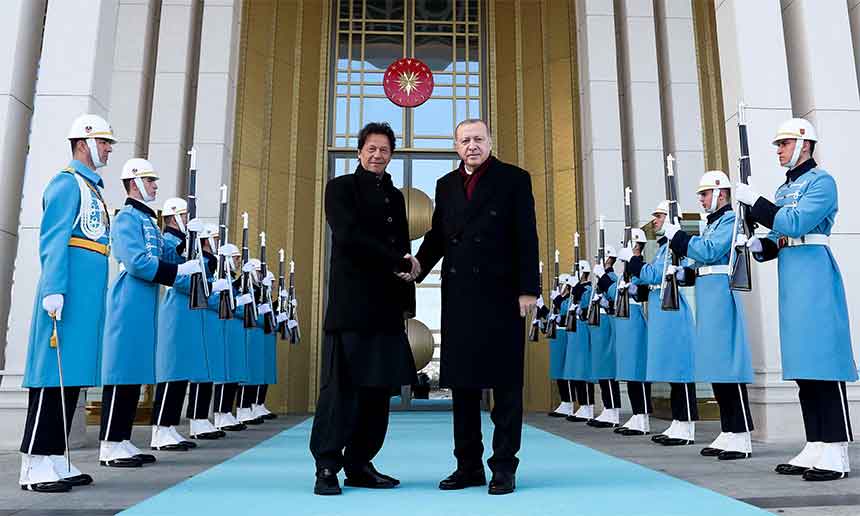
Prime Minister Imran Khan paid an official visit to Turkey at the invitation of President Recep Tayyip Erdogan on January 3. He was accompanied by a high-level delegation.
Noting their ever-expanding defence and defence industry cooperation, the pair vowed to further strengthen economic, trade and commercial relations between the two countries, and agreed to initiate mechanisms for collaboration in health and agriculture sectors as well.
First visit of a UAE ruler in 12 years
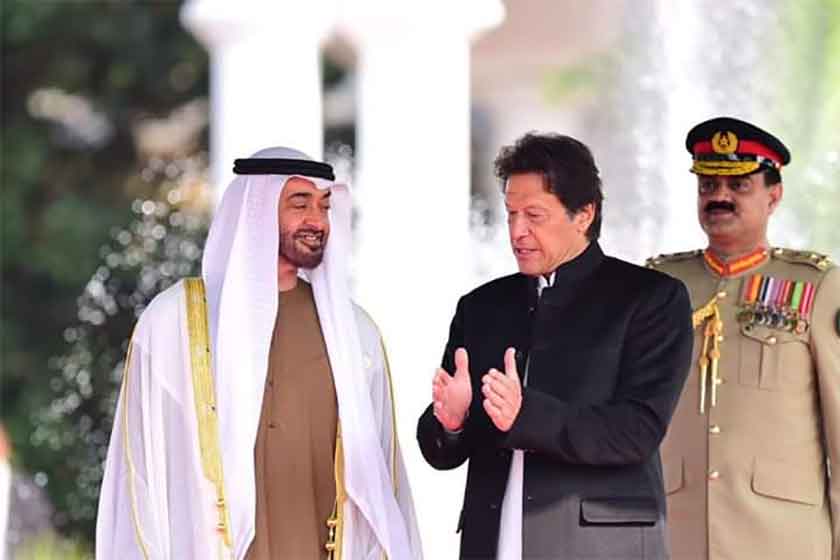
On January 6, Abu Dhabi's Crown Prince Sheikh Mohammed bin Zayed Al Nahyan arrived in Pakistan on a one-day visit, during which the two countries decided to constitute a task force to take all necessary measures to enhance bilateral trade.
It was the third meeting of Pakistani and Emirati leaders in as many months. It is pertinent to mention that the prime minister had visited the UAE twice after assuming office in August 2018 to seek economic assistance.
The UAE had then announced that it would provide Pakistan with a support package, which included $9 billion in oil payments and a $3 billion deposit in the State Bank of Pakistan.
Mohammad Bin Salman's historic visit
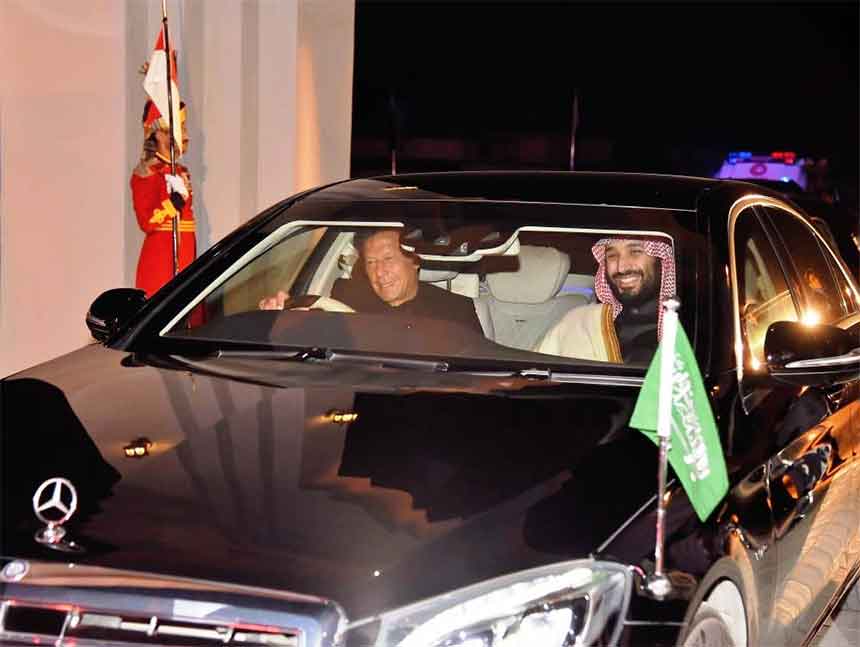
On February 17, Saudi Crown Prince Mohammed bin Salman arrived to a red carpet welcome in Islamabad.
A number of important decisions were made during his two-day visit. The two countries signed memoranda of understanding (MoUs) worth $20 billion (Rs2.8 trillion), including a $8 billion agreement for establishment of an oil refinery.
In a gesture of bonhomie, the crown prince called himself Pakistan’s ambassador in Riyadh and announced that he would free Pakistani prisoners in Saudi jails.
Indian pilot Abhinandan released
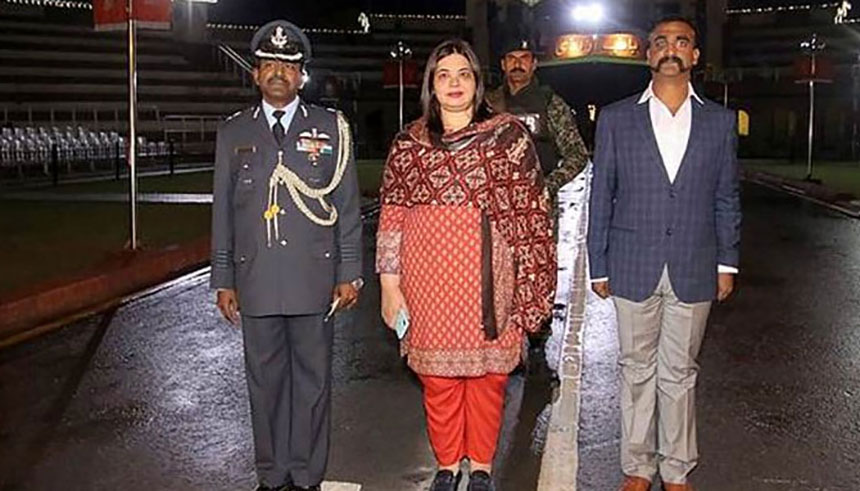
February 27 marked another low point in Pakistan-India relations when the two countries, for the first time in decades, got engaged in an aerial fight. Pakistan came up trumps, shooting down an Indian fighter jet for violating its airspace and arresting the aircraft's pilot, Abhinandan Varthaman.
Abhinandan was later released as a widely celebrated gesture of peace towards India by Pakistan.
PM Imran’s decision to free a prisoner of war was hailed globally as the step was taken amid intense tension with New Delhi and against public sentiment.
Mahathir Mohamad visits Pakistan
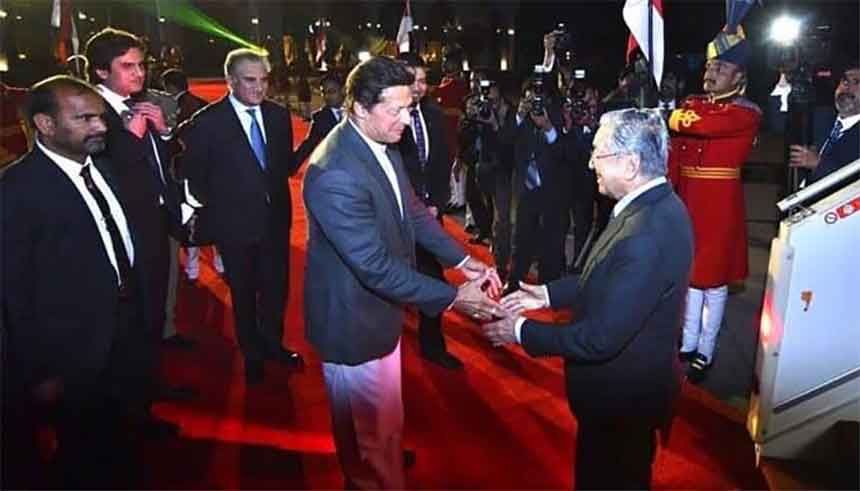
Another visit that made the headlines this year was the visit of Malaysian Prime Minister Mahathir Mohamad.
Mohamad visited Pakistan on March 21 on the invitation of Prime Minister Imran Khan, and was the Guest of Honour at the Pakistan Day Parade on March 23.
Iran Visit
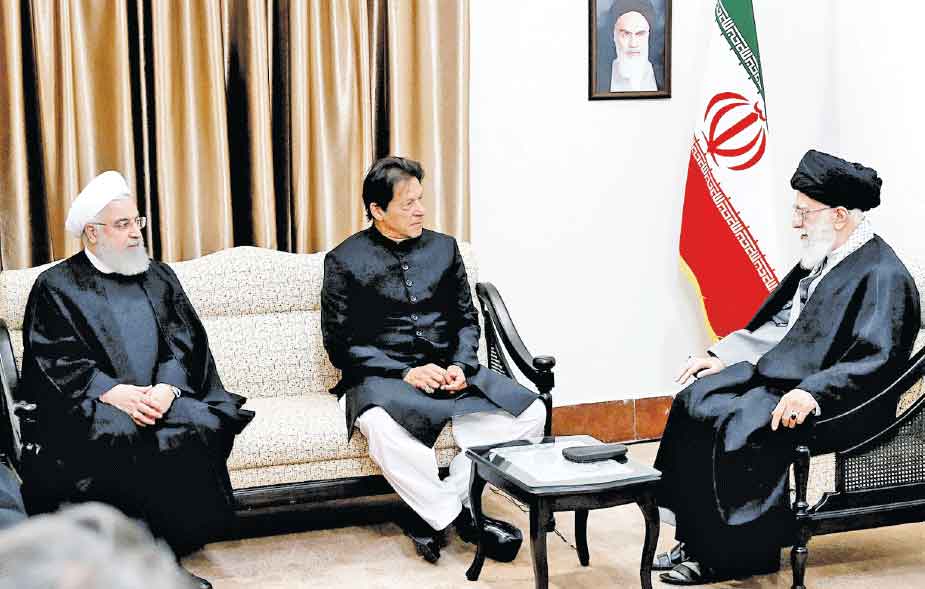
PM Imran arrived in Iran on April 21 for a two-day visit amid heightened tensions due to an attack in Ormara, in which 14 security personnel had embraced martyrdom.
After high-level consultations, Islamabad and Tehran agreed to boost security cooperation and set up a Joint Rapid Reaction Force to fight terrorism as well as guard the common border between the two countries.
PM Imran, while speaking at a joint press conference with Iranian President Hassan Rouhani, said that "we support Iran’s Islamic Revolution and that the new Pakistan is also looking for such a revolution."
CPEC next phase
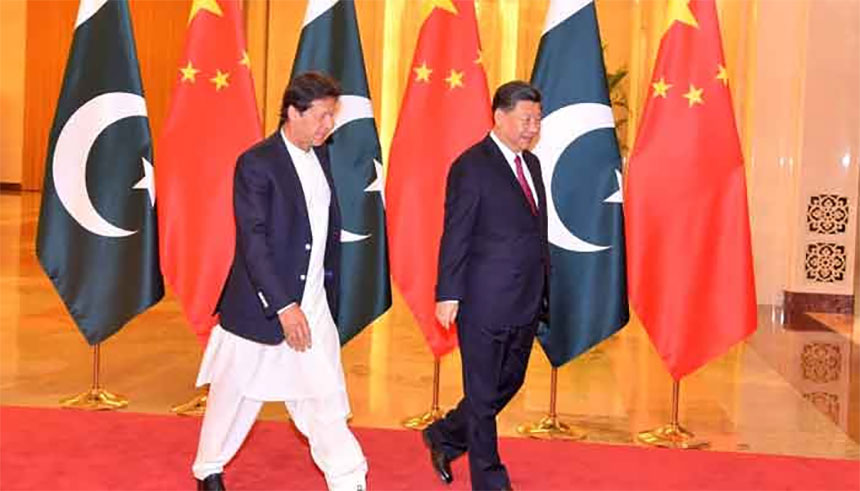
China remained a key pillar of Pakistan’s foreign policy in 2019, with PM Imran Khan vowing multiple times to adopt the Chinese model to curb corruption and establish a welfare state by lifting the masses out of poverty.
The prime minister's 2019 visit of China was an important one as Islamabad, in a bid to do some damage control after initially giving an impression that it was not as enthusiastic about the project as the previous government, assured Beijing of its “unflinching commitment” to take the China-Pakistan Economic Corridor forward.
In his meeting with President Xi Jinping, PM Imran hailed the expansion of CPEC into areas prioritised by the Pakistan Tehreek-e-Insaf government.
The prime minister had visited China at the invitation of President Xi to attend the Second Belt and Road Forum (BRF) and the Opening Ceremony of the Beijing International Horticulture Exhibition 2019.
Qatari Emir's visit
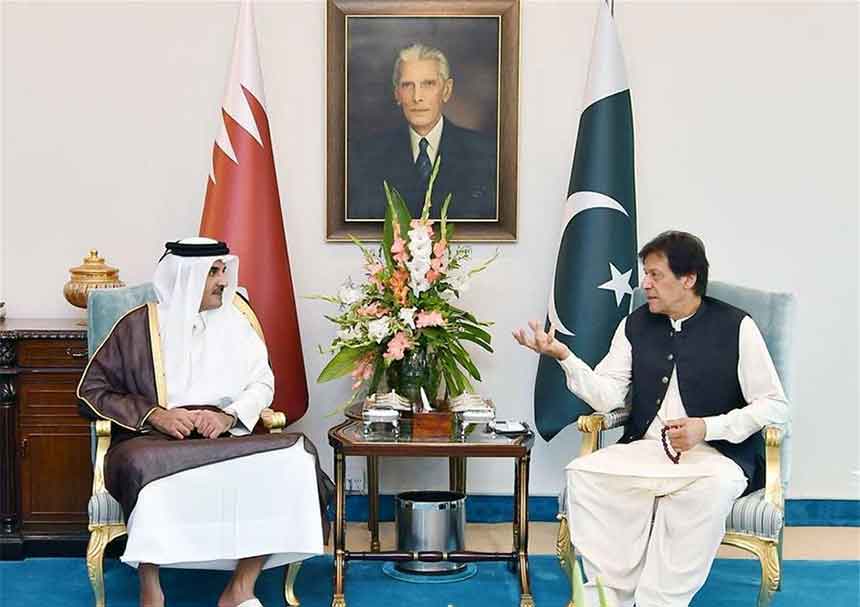
On June 23, Pakistan and Qatar signed three memoranda of understanding (MoUs) on trade and investment, and cooperation on financial intelligence and tourism during the Qatari Emir's visit.
The MoUs were signed at the start of Sheikh Tamim bin Hamad Al Thani’s two-day state visit to Pakistan.
Afghan President Ashraf Ghani in Islamabad
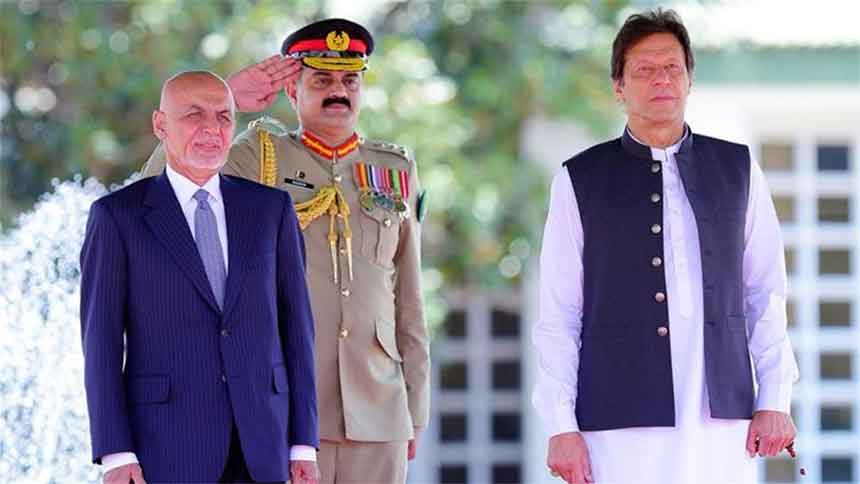
Pakistan and Afghanistan agreed to reboot their bilateral relations — which have remained mired in mistrust for long — by developing a "forward-looking vision" based on cooperation instead of political competition.
The Afghan president was in Islamabad on June 28 for meetings with the Pakistani leadership over the peace process and regional situation.
Prime Minister Imran Khan held a one-on-one meeting with Afghan President Ashraf Ghani. Delegation-level talks also took place where the two sides reviewed their state of relations.
Trump offers mediation on Kashmir
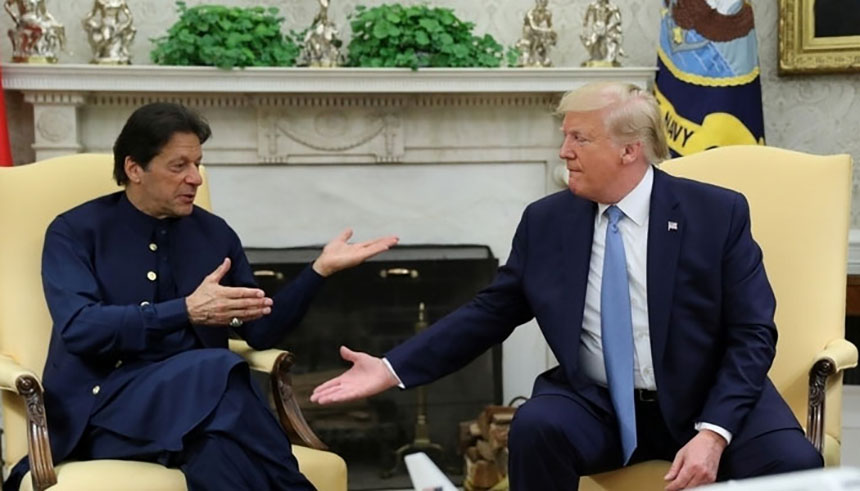
On July 23, PM Khan and US President Donald Trump met for the first time in official capacity.
President Trump praised PM Khan as well as Pakistan's efforts in fight against terrorism. In a surprising development, he took a U-turn on Washington’s policy on Kashmir and offered mediation on the dispute.
The meeting marked a new era in Pakistan-US ties, with Trump endorsing PM Khan's government and saying that “he is going be a great leader of Pakistan.”
Landmark UNGA speech
PM Imran’s speech at the 74th session of United Nations General Assembly on September 27 was deemed the most impressive by any Pakistani leader in years. In his address to the world body, the prime minister focused on the situation in Indian Occupied Kashmir (IOK), Islamophobia, money laundering and climate change.
In his over 45-minute speech, Imran criticised Indian Prime Minister Narendra for annexing IoK, imposing a lockdown in the region and crippling life in the valley.
During his US visit, he also interacted with senior officials of major media outlets and highlighted Indian atrocities in Kashmir, leading to a series of news coverage and editorials by publications such as the Wall Street Journal and New York Times.
It was for the first time in years that western media addressed Indian highhandedness and human rights violations, while also rejecting New Delhi’s assertions that its policies in Kashmir are solely an internal issue.
China ready to expand CPEC
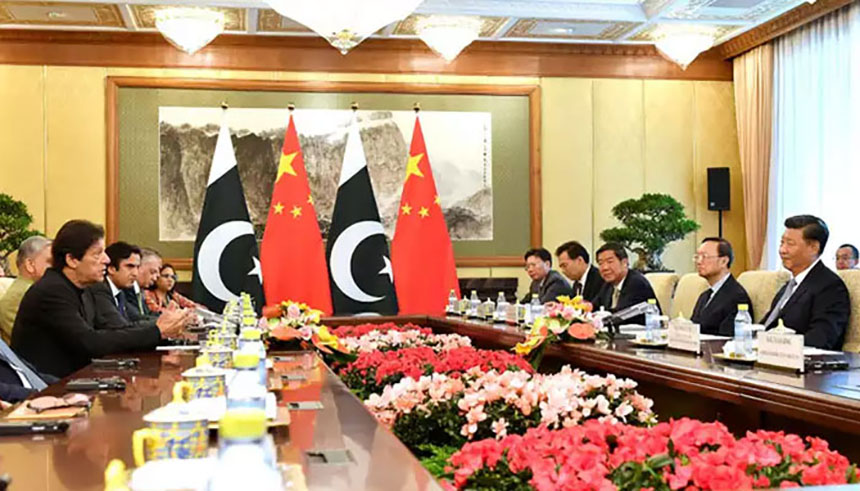
During his October visit of China, PM Imran held wide-ranging discussions with President Xi Jinping, during which the Chinese leader expressed willingness to further expand the China Pakistan Economic Corridor (CPEC).
Beijing also reaffirmed its unwavering support to Pakistan's sovereignty and territorial integrity. It also backed Islamabad on all issues of its core national interest in a clear reference to the ongoing tension with New Delhi.
Pak-led initiative for Saudi-Iran friendship
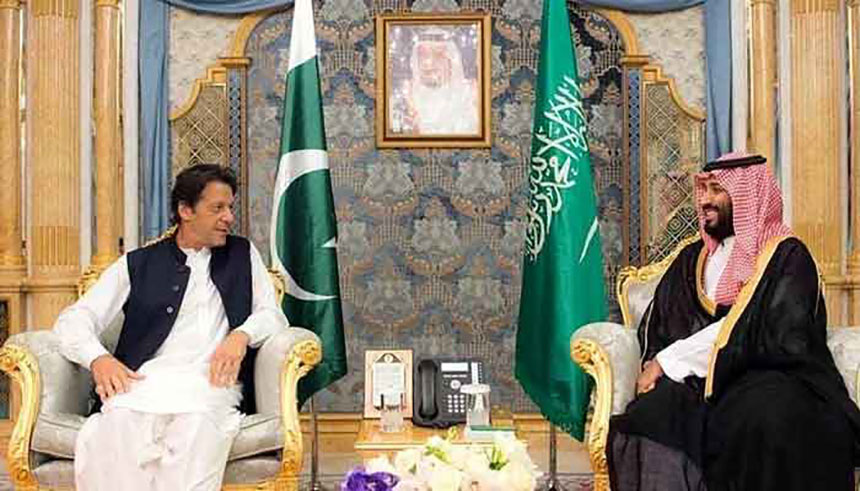
PM Imran also visited Tehran and Riyadh to facilitate talks between the two Muslim countries amid heightened tensions between them.
In his media talk along with Iran’s president, he admitted that the issue was “complex, but can be resolved through dialogue”
Soon after the Tehran visit on 13 October, the prime minister rushed to Riyadh and met Saudi King Salman and Crown Prince Mohammad Bin Salman.
The peace initiative had international consequences, as the conflict between these two Gulf countries had hit global oil supplies when Aramco’s refinery was attacked, sending oil prices skyrocketing. Saudi Arabia had blamed Iran for the attack.
PM Imran’s peace efforts also had the backing of President Trump, who had asked the Pakistani leader to mediate between the US and Iran.
Kartarpur Corridor opening
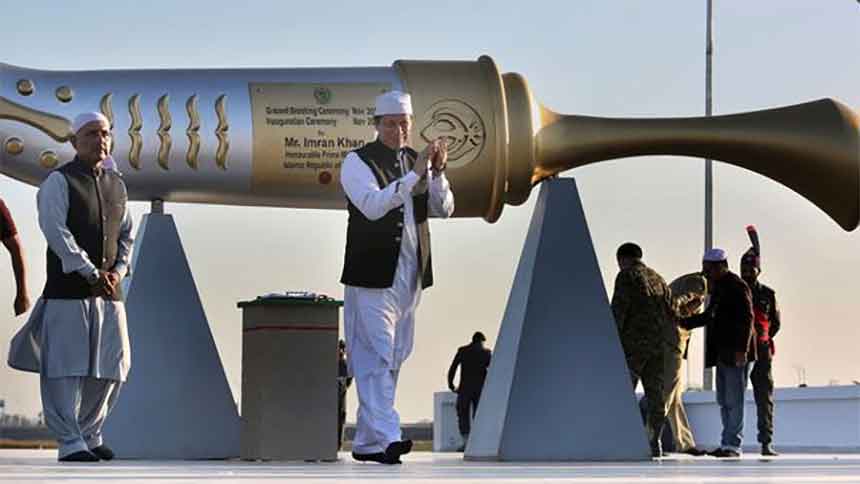
On November 9, Prime Minister Imran Khan opened the Kartarpur Corridor, taking yet another landmark step towards establishment of peace in the region.
The prime minister termed Kartarpur a gift for the Sikh community all over the world, especially those living in India, from the people and Government of Pakistan.
He welcomed thousands of Sikh pilgrims from India in Pakistan and urged Indian Prime Minister Narendra Modi to resolve the Kashmir issue through dialogue.
Bahrain's highest civil award
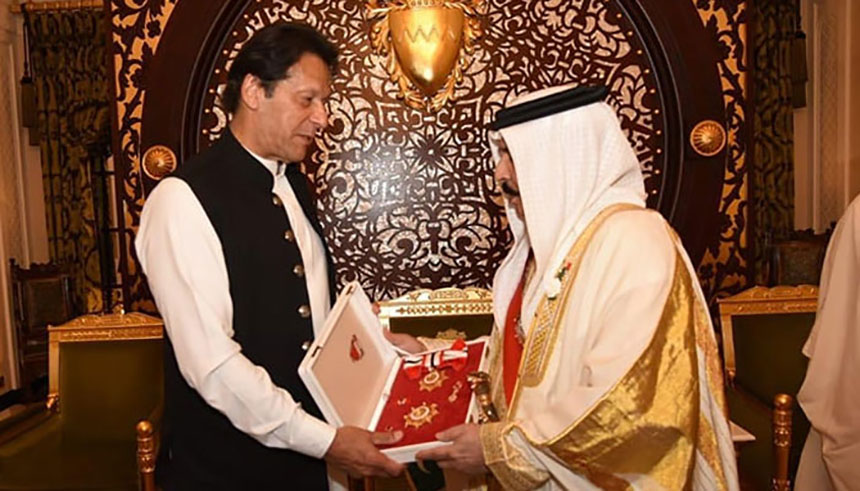
King of Bahrain Hamad bin Isa Al Khalifa on October 16 conferred on Prime Minister Imran Khan the highest civil award of Bahrain: The King Hamad Order of the Renaissance.
The prime minister had visited the Kingdom of Bahrain on the invitation of King Hamad bin Isa Al-Khalifa to attend the National Day of Bahrain as a guest of honour.
Kuala Lumpur Summit
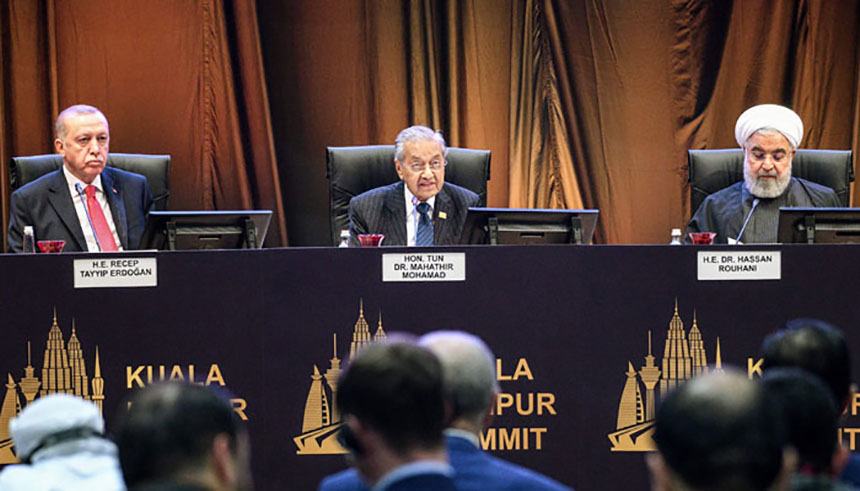
Pakistan had to face an embarrassing situation when it decided to skip the Kuala Lumpur Summit, reportedly under pressure from Saudi Arabia, which considered the conference a challenge to the Riyadh-based Organisation of Islamic Countries.
The summit, according to some reports, was proposed during the PM’s US visit for the UNGA and finalised after consultations with the leaders of Malaysia and Turkey.
The Foreign Office was under severe criticism for not pre-empting the response from the Gulf nation and failing to understand Saudi sentiments.
It did not end here, as President Erdogan, while talking to Turkish media, said that Pakistan was pressurised into skipping the conference. This prompted a series of clarifications from Pakistan and Saudi Arabia.
Faux pas on foreign tours
‘Japan and Germany share a border’
While addressing a press conference during his first visit to Tehran, PM Imran Khan made a major geographical blunder.
While emphasising the importance of economic interests between Iran and Pakistan, the premier said: “Germany and Japan killed millions of their civilians until after the second World War, when they both decided to open joint industries on their border regions.”
It’s actually France that shares a border with Germany, and not Japan. The PM's remarks made international headlines, with social media users trolling him for the slip up.
'Militant attacks from Pakistan'
PM Imran’s comment during a press conference with Iranian President Hassan Rouhani regarding militant attacks from Pakistani soil highlighted what some saw was his lack of knowledge about policy red lines.
“Iran has also suffered from terrorist attacks by groups operating within Pakistan,” he said while speaking about the Ormara attack in which 14 security personnel were martyred by unknown assailants. He had made the statement while asking the Iranian leadership to help prevent attacks on Pakistani civilians.
Violating royal protocol?
On May 30, the prime minister was in Saudi Arabia to attend the 14th OIC Summit in Mecca, when at the reception Saudi King Salman greeted the premier and held a brief exchange with him.
The prime minister, in what seemed to be a casual disregard of royal and diplomatic protocol, was videotaped saying something to the monarch’s translator and left the scene abruptly without waiting for the king’s reply.
It is not clear if the snub was intentional or the result of a misread situation, but the Saudis did not seem to mind.
SCO blunder
PM Imran was attending his first Shanghai Cooperation Organisation (SCO) Summit when he committed another diplomatic faux pas.
The summit was taking place in Kyrgystan, Bishkek on June 14. When all the world leaders and dignitaries stood up to welcome participants, PM Imran preferred to take a seat.
The video was widely shared on the internet, with people asking whether the prime minister did it knowingly or if he was simply unaware of the protocols.



